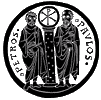
National Day of Fasting Proclaimed
Washington, D.C.
March 30, 1863
A PROCLAMATION.
Whereas, the Senate of the United States, devoutly recognizing the Supreme Authority and just Government of Almighty God, in all the affairs of men and of nations, has, by a resolution, requested the President to designate and set apart a day for national prayer and humiliation.
And whereas, it is the duty of nations as well as of men to own their dependence upon the overruling power of God, to confess their sins and transgressions, in humble sorrow, yet with assured hope that genuine repentance will lead to mercy and pardon; and to recognize the sublime truth, announced in the Holy Scriptures and proven by all history, that those nations only are blessed whose God is the Lord.
And, insomuch as we know that by His divine law nations, like individuals, are subjected to punishments and chastisements in this world, may we not justly fear that the awful calamity of civil war, which now desolates the land, may be but a punishment inflicted upon us, for our presumptuous sins, to the needful end of our national reformation as a whole People? We have been the recipients of the choicest bounties of Heaven. We have been preserved these many years in peace and prosperity. We have grown in numbers, wealth, and power, as no other nation has ever grown. But we have forgotten God..We have forgotten the gracious Hand which preserved us in peace, and multiplied and enriched and strengthened us; and we have vainly imagined, in the deceitfulness of our hearts, that all these blessingswere produced by some superior wisdom and virtue of our own. Intoxicated with unbroken success, we have become too self-sufficient to feel the necessity of redeeming and preserving grace, too proud to pray to the God that made us!
It behooves us, then, to humble ourselves before the offended Power, to confess our national sins, and to pray for clemency and forgiveness.
Now, therefore, in compliance with the request, and fully concurring in the views of the Senate, I do, by this my proclamation, designate and set apart Thursday, the thirtieth day of April, 1863, as a day of national humiliation, fasting, and prayer. And I do hereby request all the People to abstain, on that day, from their ordinary secular pursuits, and to unite, at their several places of public worship and their respective homes, in keeping the day holy to the Lord, and devoted to the humble discharge of the religious duties proper to that solemn occasion.
All this being done, in sincerity and truth, let us then rest humbly in the hope authorized by the Divine preaching, that the united cry of the Nation will be heard on high, and answered with blessings, no less than the pardon of our national sins, and the restoration of our now divided and suffering Country, to its former happy condition of unity and peace.
In witness whereof, I have hereunto set my hand and caused the seal of the United States to be affixed.
Done at the City of Washington, this theirtieth day of March, in the year of our Lord one thousand eight hundred and sixty-three, and of the Independence of the United States the eighty-seventh.
BY THE PRESIDENT: ALRAHAM lINCOLN
WILLIAM SEWARD, SECRETARY OF STATE
Source: The Collected Works of Abraham Lincoln, edited by Roy P. Basler.
The Holy Fathers Speak
I speak not of such a fast as most persons keep, but of real fasting; not merely abstinence from meats, but from sins as well. For the nature of a fast is such that it does not suffice to deliver those who practice it unless it is done according to a suitable law. So that when we have gone through the labor of fasting, in order not lose the crown of fasting we must understand how and in what manner it is necessary to conduct the business since the Pharisee also fasted, but afterward went away empty and destitute of the fruit of fasting. The Publican did not fast, and yet he was accepted in preference to him who had fasted in order that you may learn that fasting is unprofit able unless all other duties accompany it.
Fasting is a medicine. But like all medicines, though it be very profitable to the person who knows how to use it, it frequently becomes useless (and even harmful) in the hands of him who is unskillful in its use.
I have said these things not that we may disparage fasting, but that we may honor fasting. For the honor of fasting consists not in abstinence from food, but in withdrawing from sinful practices, since he who limits his fasting only to abstinence from [foods] is one who especially disparages fasting.
